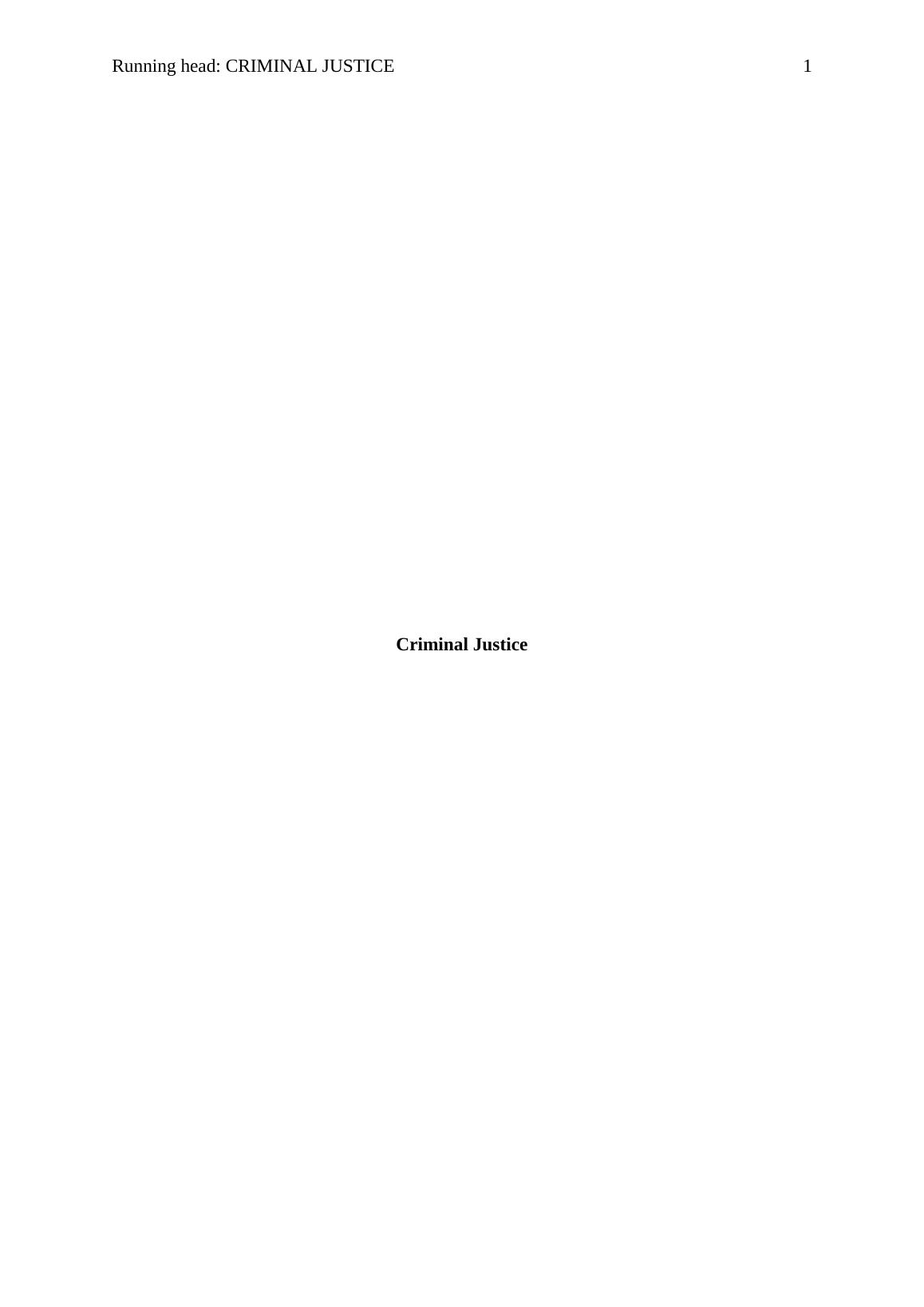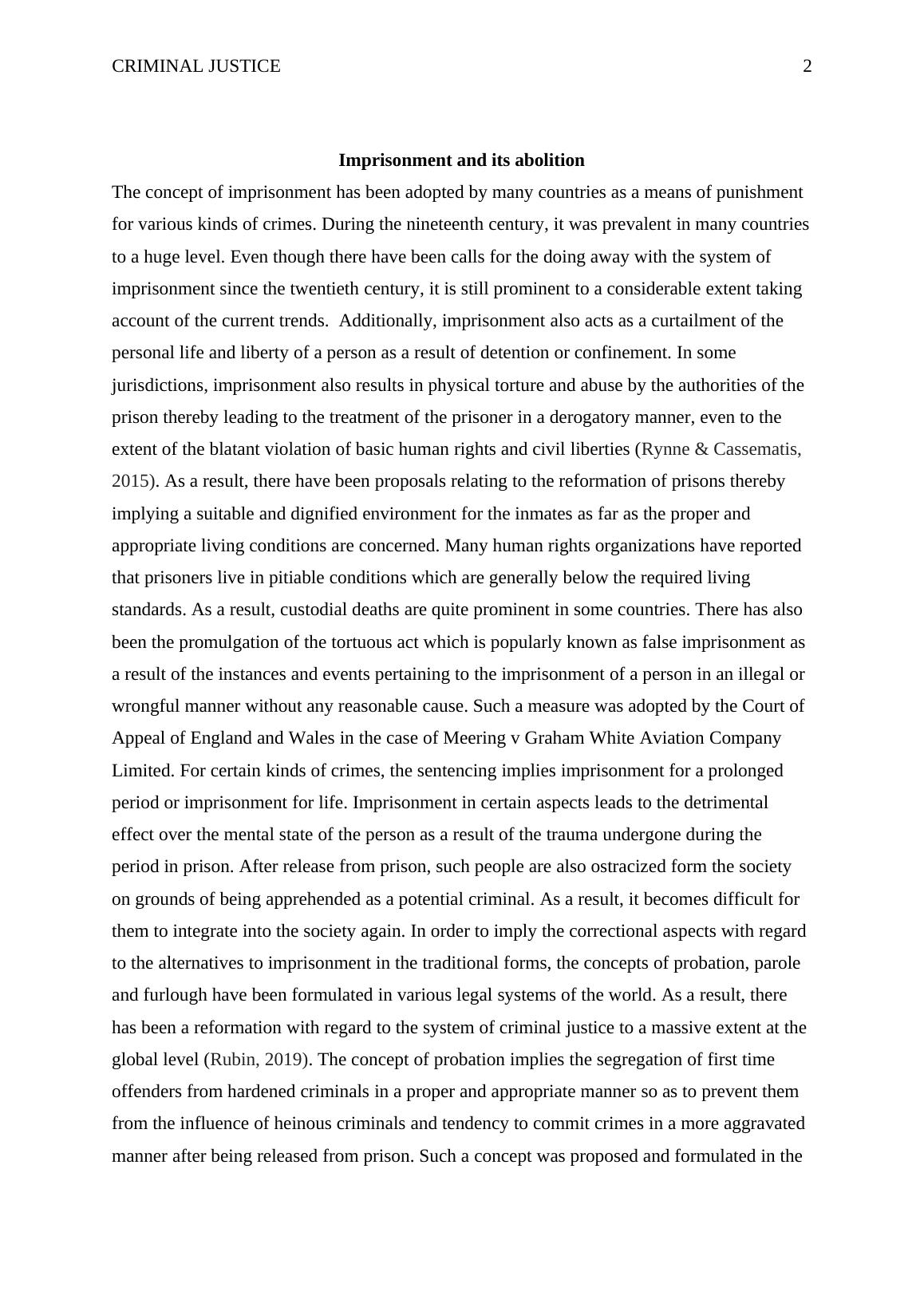Imprisonment and its abolition
Added on 2023-01-13
5 Pages1288 Words69 Views
End of preview
Want to access all the pages? Upload your documents or become a member.
Current issues in the system of Criminal Justice
|4
|703
|60
Imprisoning Offenders
|8
|2161
|190
The effectiveness of probation officers in preventing young offenders from re-offending and returning to prison
|25
|7433
|203
Integration Paper - Criminal Justice Treats to Juveniles and Young Adults
|11
|2928
|21
Causes of Mass Incarceration in the United States
|10
|1960
|190
Reducing Spending on Police and Corrections Through Crime Prevention and Justice Reinvestment
|14
|3825
|495

